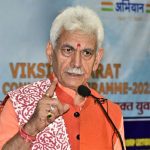In today’s fast-paced world, it’s easy to overlook the quiet voices of those who carry the weight of unspoken pain. We become so consumed with our own lives that we often miss the silent struggles of others, especially those who have seen the world change drastically around them. The generation that once upheld values like modesty, respect, and integrity now finds itself at odds with a society driven by materialism, technology, and superficial connections. It was during one such reflective moment that I met an elderly man, whose silence spoke volumes even before he uttered a word. He seemed unusually quiet and withdrawn, his face etched with deep sadness. At first, he barely spoke, but after some gentle prodding, he began to open up, pouring out his heart with words heavy with pain and reflection. His grief wasn’t personal in the way one might expect, but rather, it was about the world around him—the society in which he once believed but now felt utterly betrayed by.
He began by speaking about the air outside, “It’s polluted,” he said softly. When I asked him what he meant, he explained that it wasn’t just the physical environment, but the moral fabric of society itself that was polluted. His words struck me deeply as he continued, “Haya (modesty) is nowhere to be found anymore.”The elderly man’s lament was not just about the loss of individual modesty, but the erosion of the very values and ethos that once held families, communities, and societies together. He expressed his disappointment, saying, “Modesty and respect are totally lost now. Young people no longer care about the values we were raised with. It’s as if the essence of what makes us human has been forgotten.” In his eyes, the younger generation had not only distanced themselves from these virtues, but many had completely abandoned them. The simple manners of respect toward elders, modesty in speech and behaviour, and the importance of maintaining dignity in personal conduct had become relics of the past.
“What do they chase after now?” he asked, shaking his head. “Status, fame, money. Everything is about the outward appearance, and no one is concerned with what lies inside.” Just as he was about to continue sharing more of his pain, his grandson entered the room. In an instant, the elderly man’s expression changed. He went silent and swiftly shifted the topic to something trivial. It was as if a wall had been put up between them. His eyes, which moments before were filled with raw emotion, now looked cautious, almost afraid. The sadness I saw earlier was still there, but it had retreated behind a mask of restraint. It became clear to me that even within the walls of his own home, he felt unable to express his true feelings, to share his pain and suffering. He was a man struggling to find space to voice his concerns, even in front of his own family.
As his grandson left the room, the elderly man sighed heavily and, after a long pause, quietly resumed his conversation. “You see,” he said, “even in my own home, I can’t speak freely. The younger generation just doesn’t understand. They don’t want to hear about the things that matter—the values of modesty, respect, and honour. I don’t even feel comfortable expressing my pain in front of my own family.” He shared stories of how the younger generation seems disconnected from the cultural ethos that once united communities. In his eyes, they had traded meaningful traditions for fleeting trends. “They don’t care about our values anymore,” he lamented. “It’s as though they think these things are outdated, but without them, what kind of society are we becoming?”
He went on to describe how young people, like his grandchildren, were absorbed in a world of social media, seeking validation through likes and follows, rather than through genuine human connections. “They don’t listen anymore,” he said. “They don’t want to hear about honesty or modesty. They chase after the wrong things and forget that success isn’t just about money, it’s about character.” He paused for a moment, reflecting on the past. “When I was younger,” he said, “there was a sense of community, of belonging. We respected one another, we lived simply, but we were content. Now, everyone seems isolated, even though they are surrounded by people. It’s as if the world is getting smaller, but we are drifting further apart.” The elderly man’s sorrow wasn’t just about witnessing these changes; it was about feeling powerless to stop them. He was grieving for a world that seemed to be slipping away—a world where values like modesty, respect, and humility were cherished and upheld.
As I listened to him, I realized that his sadness was a reflection of a deeper societal issue. We live in a world where the pursuit of material success has overshadowed the importance of ethical and moral values. The younger generation, in their race for modernity, seem to have forgotten the ethos that once formed the bedrock of our society. In chasing after superficial markers of success, they’ve lost touch with what truly matters: integrity, modesty, and respect. This elderly man’s pain is a cry for us all to pause and reflect on the direction in which we are heading.
Are we raising our children to value the right things? Are we, as a society, creating an environment where modesty, respect, and kindness are nurtured? Or are we simply adding to the pollution of the moral landscape? As our conversation came to an end, the elderly man looked at me with tired eyes, and said, “It’s not too late. But we need to wake up. We need to remember what truly matters before it’s all lost.” His words stayed with me long after our meeting ended. They were a reminder that while the world may be changing, the power to preserve the values that define us lies in our hands. It’s up to us, as individuals and as a society, to reclaim the lost virtues and ensure that they are passed on to future generations.
The elderly man’s sorrow is not just his own—it is a shared grief for a society that has lost its way. But with reflection, there is also hope. Hope that we can rebuild what has been lost and restore the air we breathe, not just in a physical sense, but in a moral one as well.The elderly man’s sorrow is not just a reflection of his personal grief—it symbolizes the collective mourning for a society that has lost its moral compass. Yet, with this grief comes a chance for redemption. His quiet plea is a reminder that the responsibility to revive these lost values rests with all of us.
As individuals, families, and communities, we have the power to shape a future where integrity, modesty, and respect are once again at the core of our identity. It’s not too late to rebuild the foundations of a society that cherishes these virtues, and it’s our duty to ensure that the next generation inherits a world filled with not just material wealth, but moral richness. The air can be cleaned, both physically and morally, if we choose to act before it’s too late.
As society continues to evolve, the silent lament over fading values becomes more urgent. The erosion of our ethical foundations may not be visible in the short term, but its long-term effects will shape the future of our communities and our world. It is up to us to ensure that while we embrace progress, we do not lose sight of the values that make us compassionate, honourable, and humane. Let us not be silent in our efforts to preserve these values, for in them lies the strength and integrity of society.
Postscript
In a world increasingly driven by superficial pursuits, may we heed the lessons of our elders and strive to revive the values of modesty, respect, and integrity that are essential for a meaningful life. Let us not wait until the voices of the past fade into silence; instead, let us actively cultivate a society where these virtues flourish once again.
(Author is a Nursing Scholar from Nambla Uri. Feedback:[email protected])










